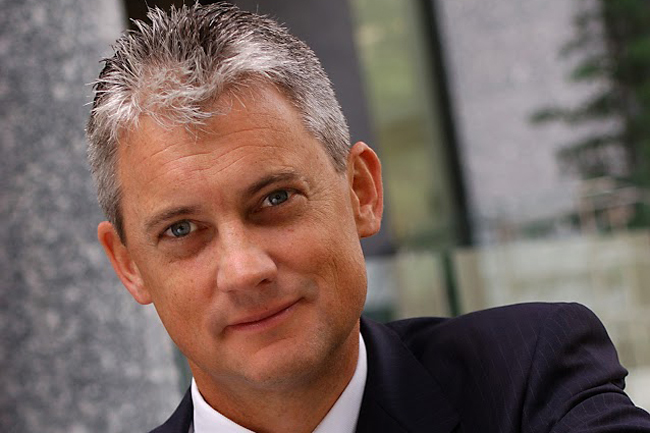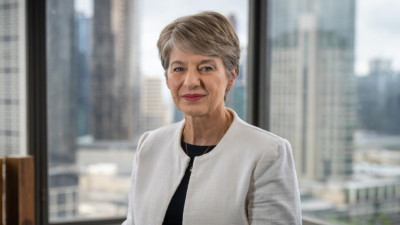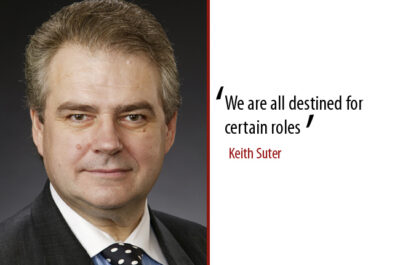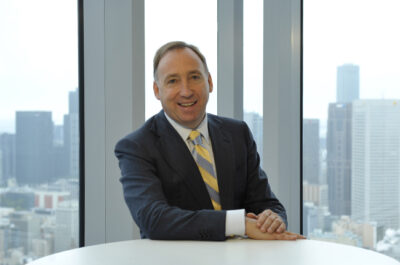Why planners should deliver ‘hard advice’
Jim Stackpool … ‘perhaps financial planners should look to the health industry as a model’
Jim Stackpool’s new book, ‘Seeking Certainty’, is his first targeting the consumers of financial services as well as advisors. The owner of Strategic Consulting & Training has specialized in advising the advisors for more than 15 years. He spoke to Greg Bright about the current state of the advice industry.
Jim Stackpool came into the financial advice industry from an interesting angle. He had experienced the highs and lows of being a computer entrepreneur in the 1980s and, eventually, suffered from the commoditization of that industry.
In its heyday, his first computer company had 66 employees and did very well selling hardware and software from offices in Brookvale on Sydney’s northern beaches. Then Dick Smith entered the market. Margins, which had been more than 50 per cent, were squeezed.
Undeterred, and still in his 20s at the time, Stackpool started the specialist Computer Farmware company. He had an affinity with the bush, where he had grown up, and also had a pilot’s licence. But again the business failed to combine hardware and software sales in the face of increasing competition from major suppliers.
After a chance meeting, he was offered a job by the Financial Management Research Centre attached to the University of New England, so, in 1989 he packed his bags and moved to Armidale, north-west NSW. After three years as an employee – the only time in his career – he thought he could provide better advice and services on his own, especially by concentrating on the financial planning market. He moved back to Sydney and started what became Strategic Consulting & Training (SCAT) in 1992.
“I had been talking to financial advisors about the concept of advice. They all said that they valued the relationships they had with clients but the trailing commissions were how they got paid. I found this a mismatch. So, I bought a house in Manly and thought: ‘let’s give this a crack’.” The entrepreneur was back.
He started to collect statistics on every type of business covering metrics, such as advisor call and conversion rates, that the life companies and dealer groups didn’t often have. He landed a big client in his first year and then branched into one-on-one consulting to planning practices and workshops. By the end of the 1990s he had a database of 1,700 firms, which enabled him to launch a ‘dashboard’ benchmarking service on all aspects of a financial planning practice.
Keen on providing world’s best practice ideas and processes to his clients, Stackpool forged relationships with international partners and did some joint-venture training.
After a few years of this, however, he felt the Australian market was too different to that of the US. “We needed our own Australian approach,” he says, and settled into his current home-grown model.
A prolific blogger, columnist and writer of practice notes and tips for his clients and the broader industry, Stackpool had his first book, ‘What Price Advice’, published in 2009.
“I had always been passionate about pricing,” he says. “The book is essentially about attaching the value of the advice to the fee rather than the product.” The book continues to sell, primarily to advisors but also, increasingly, to accountants.
His second book, ‘Delivering Certainty’, published in 2012, was also pitched at advisors. “Advisors have to be consistent, specific and methodical if they are going to build a business,” Stackpool says. “People have usually not been skilled in engagement. They tend to rely on their personality. But people can be trained in how to engage.”
The average age of a SCAT client is 38. He or she wants to build a business which delivers great advice, he says. They also see the need to be able to engage the client every year because they know they can’t rely on the (investment) product.
In the latest book, ‘Seeking Certainty’, the aim is to embark on the slow and arduous task of educating the consumer.
“The latest book is a cross-over for us,” Stackpool says. “The recent ASIC report said that only 18 per cent of people engaged a planner. Advisors are trying to look for efficiency and they’re still looking at the high-net-worth market. They still have a mindset of the 80s. There’s a difference between a value proposition and a product proposition.”
Stackpool believes that one reason that the flight to SMSFs has accelerated is because consumers are no longer trusting of financial services companies, especially since 2008. “So what does the industry do? It responds with another product solution. It’s a bit like someone who plays golf right handed and then goes out to play left handed.”
The first half of ‘Seeking Certainty’ involves the fictional accounts of the behaviour of five people as they pass through the various life stages. The second half examines what they have been trying to achieve and how they could engage with an advisor.
Long a critic of the commissions system, and the son of a country-town doctor, Stackpool suggests that perhaps financial planners should look to the health industry as a model.
“My vision is that consumers will go along to an advisor and that he or she meets with the client each year to prove that they are getting closer to their desired outcome. And the advisor manages the clients’ behaviours.”
He says ‘Seeking Certainty’ will help SCAT’s advisors to tell a story. The advisors, who must be compliant and non-commission, receive accreditation, with a continuously maintained rating system.
“We want to build up Cultivating Advice Partners, similar to an association,” Stackpool says. “This is a group of people who believe in this type of engagement. We’re not taking on their licence. We give them a tick, similar to the Heart Foundation’s tick of approval.”
Stackpool believes that the key to advice is addressing unmet aspirations and unresolved complexities.
“Our clients earn their fees with hard advice, not easy advice,” he says.
‘Seeking Certainty’ is available from book stockists and direct online at: www.seekingcertainty.com










